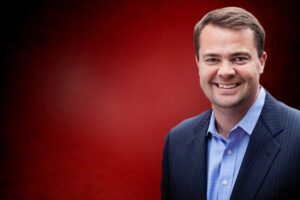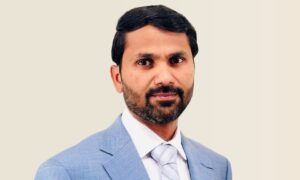Jason DeLano is a highly successful business professional and an active member of his local community. With over twenty-two years of experience working in Information technology, Mr. DeLano specializes in various databases including Oracle, SQL Server, Postgres, MongoDB, and DynamoDB.
After graduating with a Bachelor of Science in Computer Science from Siena College in 1998, DeLano entered the business landscape by accepting a position as a consultant with Oracle. However, his ambition and experience eventually led him to secure his current role as a solutions architect. He oversees and evaluates business needs by aligning IT strategies with an organization’s long-term goals. Due to his excellent communication and leadership skills, DeLano is able to quickly and efficiently implement the necessary changes to improve business operations.
Alongside his professional achievements, Jason DeLano also believes in giving back to his community. As a husband and father, he sets a positive example for his children and frequently supports local charitable organizations.
Where did the term solutions architect come from?
The idea is, in my mind, the kind of person that can pull all the elements of a project together. You can think of it like an architect, drawing out all the specs and pieces that need to get done, but the architect rarely builds each of the pieces and they’re designing it as a whole and as it matures, it rarely doesn’t need revisions along the way. Just like solutions that need to adapt to changes in scope and design. As such a solution architect has a similar approach, where we are coming up with over a dozen different products that fit together to meet someone’s needs or coming up with a platform that we will build a brand new custom solution on. Really, a solution architect has been out for around for fifty to sixty years, but in the building industry as a whole, it’s been around for thousands of years.
What do your everyday tasks look like?
My typical day starts with defining my tasks. I try to break tasks into small components of what I need to accomplish, like a to-do list. And then, throughout the day, I prioritize them based on their respective due dates and urgency. I break my tasks into a backlog and I like to use a whiteboard with yellow post notes with four columns: backlog, in progress, testing, and done. Most of my day is broken up into whatever task requires my attention the most.
Can you provide some insight into your role?
The tech end of it is interesting in how you bring these ideas to life. I love to build and come up with proof of concept, and then create a path forward to make those operational. I like to start with a business problem or the process that needs some refinement or optimizations. Then I break that problem or process into lots of small steps and build a POC so that the customer has something to see that incrementally meets their needs. With all the tools at our disposal, we can create a constant loop of feedback to get what the customer wants instead of the old method where hundreds or thousands of individual requirements dragged the process down to a grueling long process and the customer does not see any progress till the project is almost complete.
How do you remain productive?
What I try to do is break my day into small little chunks, like I do when I’m programming. How can I accomplish and look at this set of data? What can I work on that’s going to complete these things more efficiently, along with delegation. Because you can’t complete everything on your own and you need help to not get overwhelmed based on the scope of work. In the end, it’s a combination of delegating, analyzing what needs to be done, and finding the most efficient person or existing reusable process to accomplish it.
What is a lesson your have learned over the course of your career?
It’s not trying to do everything on your own. When I first started business in 2004, I thought I could handle every small task on your own, Acounting, HR, Contracts) However, I quickly realized that those small tasks that I thought I could handle on my own took more brain power and time than I thought they would. In the end, it may seem like money you’re taking out of your own pocket to give to someone else to solve it, but you’re putting your mind at ease so you can focus on the true goal of the business rather than each individual set of tasks.
How have you grown your business?
The big strategy for growing the business is not being a generalist. Especially in consulting or custom development. If you’re trying to be everything for everyone, you’re going to be nothing for anyone. Specialize in what you do and when you showcase that to customers, they’ll know what you’re good at and you can build a practice around it. You can be proud to display your accomplishments and value it appropriately.
What’s one trend to watch out for?
The shift in the cloud computing and even further into serverless computing. Where even the initial introduction to the cloud was the infrastructure as a service. At first, you put your data center, power, and bandwidth into the cloud. Nowadays, you have a server that’s running the cloud and virtual machine that’s sitting on top of that server. Now, the shift to serverless computing where you’re not only getting the infrastructure, but the product itself running on the cloud that you need and fully managed. You pay on a consumption model that is often on a per transaction basis or per gig of storage. It makes everything more granular and easier to work with, along with more efficient cost wise.
Have you encountered any failures as a professional? and if so, how did you overcome them?
My biggest failure, early on, was underestimating what it would take to accomplish things. I was in a rush to establish the business I had to get those first customers to prove our value and worth. I ended up undervaluing or underestimating the effort. Sure, I can build a prototype early on in under 500 hours, instead of 2000. Yet, I started to worry about what could go wrong and it became a heavier burden I had to endure on my own when I was not in the position to do so. I ended up doing a lot of extra, unpaid work when I could have avoided it with better planning.
What should individuals consider when trying to start a business?
I feel like the best business idea is reusability in general. I think of the way Amazon works and sends out packages and the endless amount of boxes that are generated in broken down and recycled everyday. I’m not a logistics person but I feel like having a container that is dropped off and then picked up by Amazon the next day or the next time that they are back and filled up again. Almost like the old milk delivery system. Bottles were left out front and the milk man dropped of bottles but picked up the old ones, then we would not even need to deal with so much cardboard. Programming is a lot of reuse, finding quick access to things and slightly tweaking it to fit your need or publishing a revison to an open source product for the better community as a whole.
What type of software do you use on a daily basis? Any you can recommend?
We use AWS’s Lambda functions. It’s a serverless function that essentially spins up a container to run your code. So, rather than having a server that is constantly out there running, I use lambda to execute that function. I can pass parameters and make the call to AWS Lambda, it executes my code that’s running out on the cloud and I only get charged for the time it’s used. So, it could be running for a second or less and I would only have to pay for that consumption. I can use it with my customers and help it streamline the process. On our side, we develop the product and do not have to worry about managing it and we can focus on continually enhancing it versus operating it.
Finally, what advice would you give someone just starting out in their career?
You don’t need to conquer the world by yourself. It’s ok to reach out and get advice from other people, learning from them, and asking for help at the right point in time could help you learn what you need a lot faster. I learned a lot solo, but I could have learned a lot more, and faster, from other people around me by being more vulnerable and admitting that I do not know it all. Talk about your provlems with a colleague and listen to their professional and personal experiences. You will become a better leader and version of yourself by being more open to learning.



































